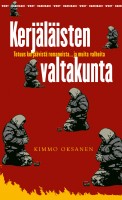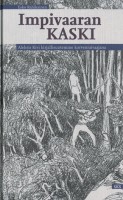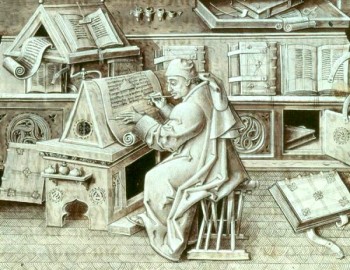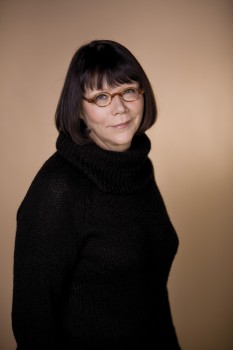Archive for September, 2009
Kimmo Oksanen: Kerjäläisten valtakunta [Kingdom of beggars]
24 September 2009 | Mini reviews, Reviews
 Kimmo Oksanen: Kerjäläisten valtakunta.Totuus kerjäävistä romaneista ja muita valheita
Kimmo Oksanen: Kerjäläisten valtakunta.Totuus kerjäävistä romaneista ja muita valheita
[Kingdom of beggars. The truth about Roma beggars, and other lies]
Helsinki: WSOY, 2009. 214 p.
ISBN 978-951-0-35778-1
€ 15, paperback
After Romania and Bulgaria had joined the European Union in 2007, a small group of Roma beggars from Romania arrived in Helsinki. This was a sight that was familiar to Finns on their travels abroad, but alien to them in the environment of their own city. Begging is not a crime in Finland, but the phenomenon caused a great stir in the media and, eventually, among political decision-makers. This polemic by journalist Kimmo Oksanen gives a face to the beggars and reveals many factors behind begging, as well as experiences of poverty and discrimination. Oksanen observed the beggars on the streets daily and travelled to their home villages to investigate their backgrounds. Roma criminal activity indisputably occurs elsewhere in Europe, but Oksanen maintains that there is no evidence that organised crime has arrived in Finland. The beggars are nevertheless objects of fear as well as racist attitudes.
Esko Rahikainen: Impivaaran kaski [The burnt clearing at Impivaara]
24 September 2009 | Mini reviews, Reviews
 Impivaaran kaski. Aleksis Kivi kirjallisuutemme tienraivaajana
Impivaaran kaski. Aleksis Kivi kirjallisuutemme tienraivaajana
The burnt clearing at Impivaara. Aleksis Kivi as trailblazer of Finnish literature.
Helsinki: Suomalaisen Kirjallisuuden Seura, 2009. 270 p., ill.
ISBN 978-952-222-107-0
€ 29, hardback
This year marks the 175th anniversary of the birth of Finnish national author Aleksis Kivi (1834–1872). His work as a creator and cultivator of the Finnish language and literature was truly pioneering. Impivaaran kaski (the title refers to his major work, the novel Seitsemän veljestä, Seven Brothers, 1870) deals with the social conditions surrounding the creation of his works and examines their critical reception. Divisive literary disputes raged, and it was not until the second decade of the 20th century that Kivi’s status came to be acknowledged more widely. Esko Rahikainen – a librarian at the National Library and the author of several books on the life and works of Kivi – has utilised new sources to investigate the criticism and marketing of Kivi, as well as readers’ experiences and the use of his works in Finnish education.
What’s so great about paper?
17 September 2009 | Articles, Non-fiction

High-tech: the ultimate gadgets of the 15th century, parchment and pen. A portrait of Jean Miélot, the Burgundian author and scribe, by Jan Tavernier (ca. 1456)
The day will soon come when commuters sit on a bus or train with their noses buried in electronic reading devices instead of books or newspapers. Teemu Manninen takes a look at the digital future
Most people interested in books are aware of the arrival of electronic reading devices such as the Amazon Kindle, a kind of iPod — the immensely popular portable music listening device made by the company Apple — for electronic books. For a literary geek like me, the Kindle and e-readers should be the ultimate gadget: a whole library in a small, paperback-sized device. However, I’ve been wondering why digital reading hasn’t become as popular as digital listening. I myself have not invested in an e-reader, although I ought to be exactly the desired kind of customer. After all, I read all the time. Even the mp3 player I have is mostly used for listening to audio books. More…
Here and there
11 September 2009 | Extracts, Non-fiction
Extracts and photographs from Jotain on tapahtunut /Something happened (Musta Taide, 2009; translation by Jüri Kokkonen)
 News photos document dramatic, dangerous or tragic incidents – but the photojournalist Markus Jokela is interested in documenting ordinary, domestic and everyday life, be it in Iraq, Russia, Biafra or Sri Lanka. These photographs, with commentaries, are taken from his new book, Jotain on tapahtunut / Something happened (2009), offering glimpses of life in contemporary Finland and in the United States
News photos document dramatic, dangerous or tragic incidents – but the photojournalist Markus Jokela is interested in documenting ordinary, domestic and everyday life, be it in Iraq, Russia, Biafra or Sri Lanka. These photographs, with commentaries, are taken from his new book, Jotain on tapahtunut / Something happened (2009), offering glimpses of life in contemporary Finland and in the United States
I’ve never been particularly enthusiastic about individual news photos, especially about taking them.
A good news photo has to state things bluntly and it has to be quite simple in visual terms. It must open up immediately to the viewer.
But the images in photo reportages do not have to scream simplified truths. They can whisper and ask, and open up gradually. One can come back to them. The reportage is something personal. Though a poor medium for telling about the complex facts of the world, it can provide experiences that survive. More…
What God said
3 September 2009 | Fiction, Prose
Extracts from the novel Herra Darwinin puutarhuri (Otava, 2009; Mr Darwin’s Gardener, Peirene Press, 2013). Interview by Soila Lehtonen
The congregation sits in the church pews and the jackdaws caw in the belfry.
We smell of wet dog, the rain made us wet and it is cold but the singing warms us, the hymn rises to the roof and above the roof dwells God, Amen.
We saw Thomas Davies on the hill, he is working in Mr Darwin’s garden,
the atheist and lunatic, he stood in the field alone and the water lashed his face
an irreligious pit pony wandering in the darkness he is from Wales
does the godless man think he can stand in the rain without getting wet did he get an umbrella or bat wings from the devil
perhaps Thomas imagines that he can hold back the rain and the rain not hold him back, he thinks he is more exalted than God with his head in the clouds
The church’s hard pews press into posteriors, the poor man will not grow fatter, for there are no fat and lean years but only lean ones, and thin are the poor man’s sheep and cows and children too, but the rich man cultivates weeds for his amusement as Mr Darwin did and earns money and fame! More…

